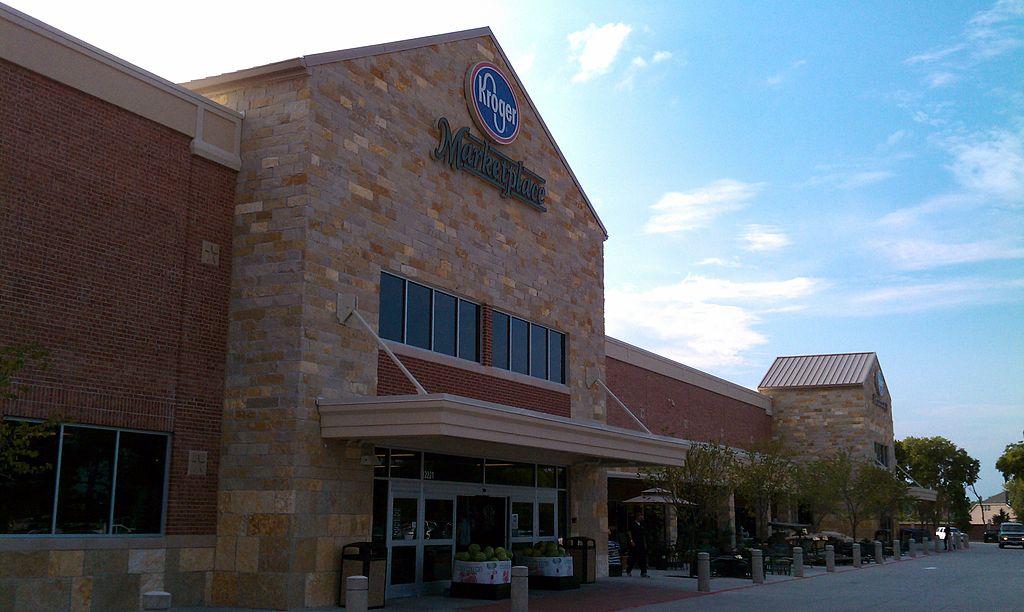
The Kroger Co. has reduced energy use in its stores by 34.6 percent since 2000, saving more than 2.5 billion kilowatt hours (kWh). That's enough electricity to power every home in Charlotte, North Carolina for a year -- or the equivalent of taking 362,000 cars off the road for a year. The largest supermarket chain in the U.S. and fifth-largest retailer in the world, Kroger recently published its eighth annual sustainability report, which includes its energy usage reduction efforts.
Kroger’s manufacturing plants also continue to reduce their use of electricity and gas. As of this year's report, they have saved enough energy to power 8,411 American homes for a year, and cut enough gas to power 442,446 American homes for a year.
Its manufacturing plants are also reducing water use: In 2013, Kroger manufacturing plants reduced water use by 61 million gallons of water. That is equivalent to the annual water use of 1,455 American homes. Additionally, water use at stores in four of its western divisions was reduced by 7.6 percent last year. These figures crushed an initial 5 percent company-wide reduction target for 2014.
Not everything is completely rosy in Kroger’s sustainability report. The company's total carbon footprint increased by 3.8 percent in 2013 compared to 2012. The retailer attributes this stat to the 20 percent increase “assigned to the refrigerant primarily used in our systems.” However, Kroger is the in process of converting grocery stores from HCFC systems that deplete the ozone layer to HFC systems.
Renewable energy use
A few Kroger stores and facilities use renewable energy. The Turkey Hill Dairy in Lancaster, Pennsylvania (a Kroger subsidiary) purchases 25 percent of its energy needs from wind power produced at the Frey Farm Wind Turbine Project. That's enough power to produce 6 million gallons of ice cream and 15 million gallons of iced tea, two Turkey Hill specialties, for an entire year.
Additionally, four Kroger stores have about 400 kilowatts (kW) of solar energy that produce almost 585,000 kilowatt hours (kWh) a year. A new store designed for a 200 kW solar array in Los Alamos, New Mexico is being built. Kroger’s Clackamas Distribution Center in Oregon was the first distribution center (DC) to install a photovoltaic system in 2011. The system has a 500 kWh capacity which provides about 10 percent of the DC’s power needs.
Waste reduction efforts
Reducing food waste is important to Kroger. The Ralph’s/Food 4 Less DC in Compton, California utilizes the Kroger Recovery System which uses anaerobic digestion to turn food waste into biogas. The system processed 46,500 tons of food waste in 2013. The biogas is used to help power the DC. The system reduces food waste costs by $4.5 million and reduces carbon emissions by an estimated 90,000 tons a year.
Kroger has another waste-to-fuel project at its Turkey Hill Dairy: A total of 988 stores participate in some type of organic waste diversion program. Through Kroger’s Perishable Donations Partnership, stores can donate perishable food that is still safe to eat but is no longer “retail-ready.”
Kroger is also reducing waste at manufacturing plants and distribution centers. The retailer joined the Environmental Protection Agency’s Waste Wise Program and adopted the EPA’s “zero waste” definition for its company-wide sustainability efforts. The goal is to meet and exceed the “zero waste” threshold of 90 percent in all of its facilities. In 2013, 27 of its 32 corporately managed manufacturing plants were designated as “zero waste” facilities. Kroger’s manufacturing plants reduced waste by 27.5 percent the same year from 2012.
Recycling plastic bags and more
Kroger has recycling measures in place. Its stores and manufacturing and distribution facilities recycled over 1.1 billion pounds of corrugated cardboard and paper in 2013. It provides recycling bins for customers to recycle plastic bags, dry-cleaning bags and plastic shrink-wrap in all of its stores. In 2013, Kroger recycled 35 million pounds of plastic from its stores and distribution centers, a 10 percent increase from 2012 and 33 percent since 2011. Kroger reduces the use of plastic bags through better bagging practices and encouraging customers to use reusable bags.
Image credit: Jonesdr77

Gina-Marie is a freelance writer and journalist armed with a degree in journalism, and a passion for social justice, including the environment and sustainability. She writes for various websites, and has made the 75+ Environmentalists to Follow list by Mashable.com.














